Home is Somewhere Else
(Mi casa está en otra parte)
Carlos Hagerman, Jorge Villalobos / Mexico, United States / 2023 / 87 min
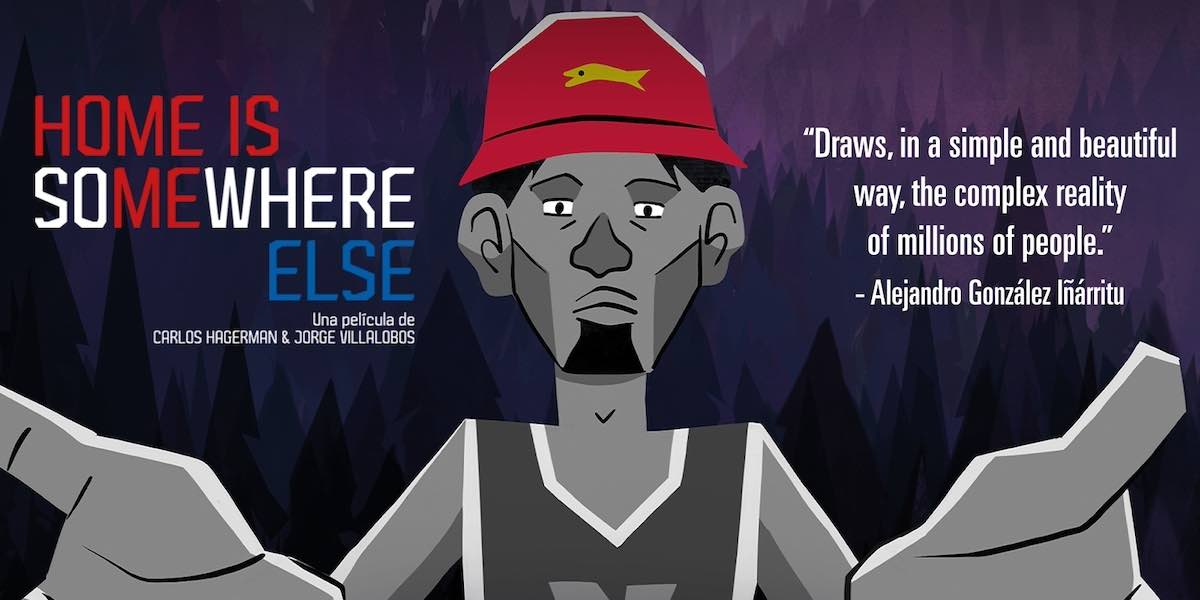
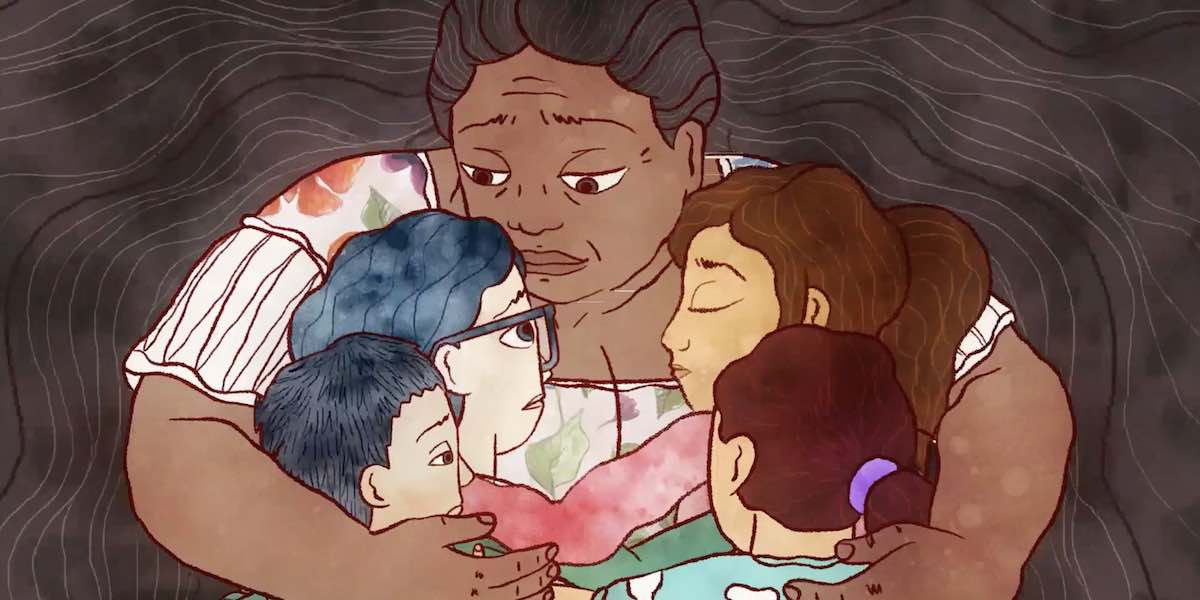
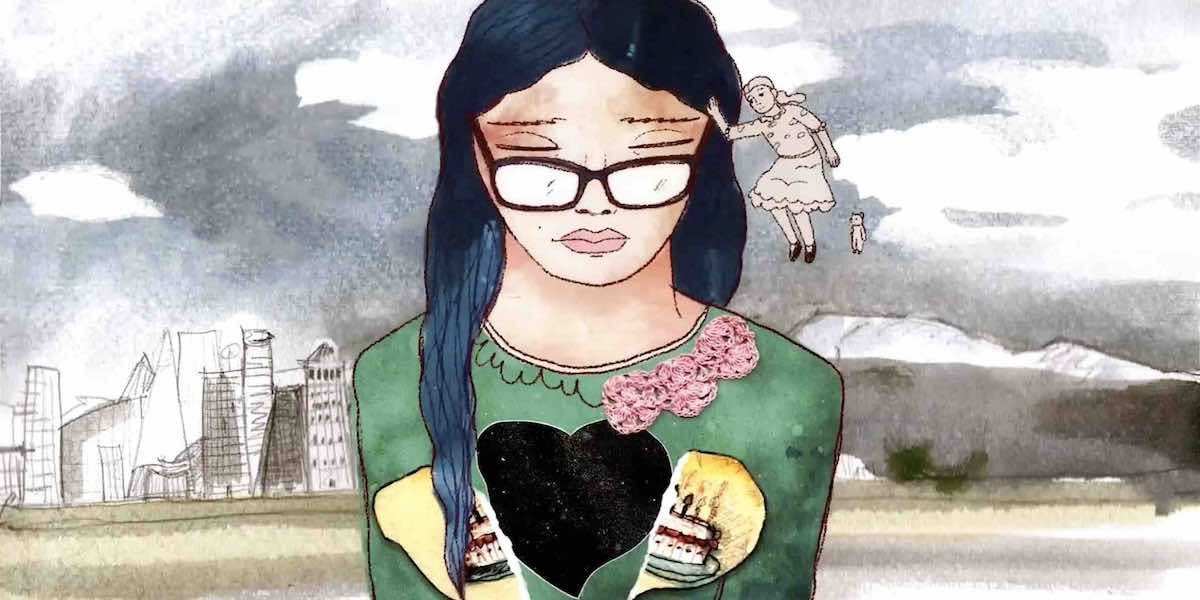

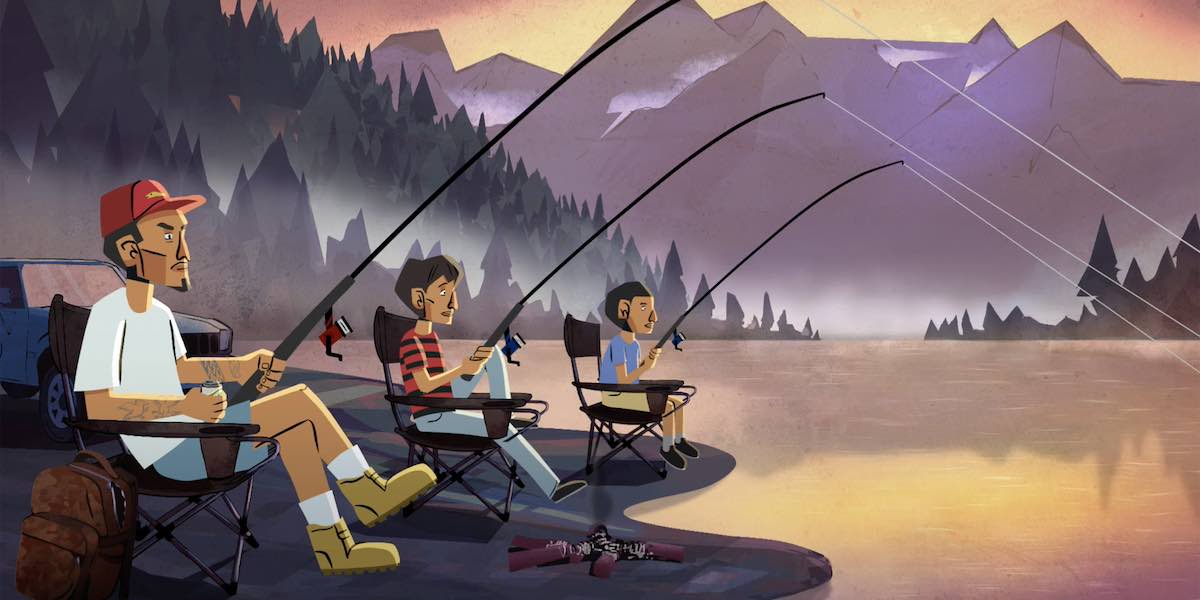
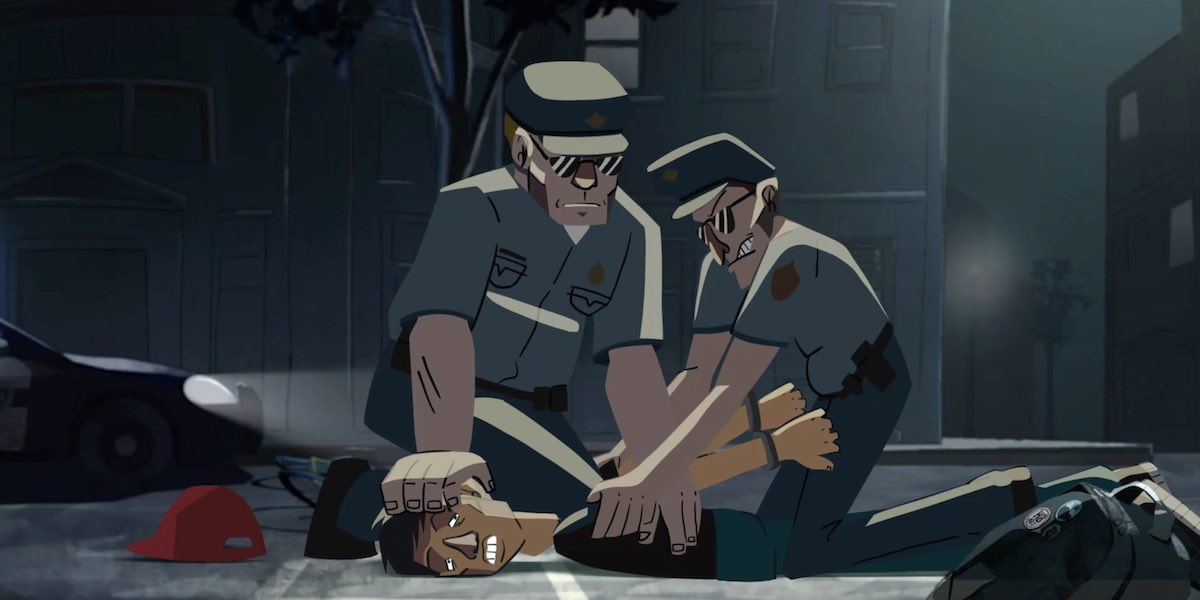
IDFA Int'l Documentary Film Festival
Best film for young people 14+San Diego Latino Film Festival
Audience AwardHavana Film Festival
Coral de Animación AwardAnnecy Int'l Animation Festival
Zanate Mexican Documentary Film Festival
Honor mentionGuadalajara Int'l Film Festival
Spanish Film Club
Related Films
 Los Lobos(Los Lobos)Samuel Kishi LeopoFollowing his success with We Are Mari Pepa, director Samuel Kishi Leopo approaches a more personal topic in the moving autobiographical film. With ...
Los Lobos(Los Lobos)Samuel Kishi LeopoFollowing his success with We Are Mari Pepa, director Samuel Kishi Leopo approaches a more personal topic in the moving autobiographical film. With ... Nobody’s Watching(Nadie nos mira)Julia SolomonoffWhat happens when a man who is accustomed to being the centre of attention finds himself becoming invisible? When a life busked from cash in hand ...
Nobody’s Watching(Nadie nos mira)Julia SolomonoffWhat happens when a man who is accustomed to being the centre of attention finds himself becoming invisible? When a life busked from cash in hand ... A Bruddah’s Mind(Cabeça de Nêgo)Déo CardosoBased on real events, this political drama fuses Brazilian history with international anti-racist movements. Saulo, a black introverted student and fan ...
A Bruddah’s Mind(Cabeça de Nêgo)Déo CardosoBased on real events, this political drama fuses Brazilian history with international anti-racist movements. Saulo, a black introverted student and fan ... Bacurau(Bacurau)Kleber Mendonça Filho, Juliano DornellesACADEMY AWARD® BRAZIL’S SUBMISSION FOR BEST FOREIGN LANGUAGE FILM A few years from now… Bacurau, a small village in the Brazilian sertão, ...
Bacurau(Bacurau)Kleber Mendonça Filho, Juliano DornellesACADEMY AWARD® BRAZIL’S SUBMISSION FOR BEST FOREIGN LANGUAGE FILM A few years from now… Bacurau, a small village in the Brazilian sertão, ...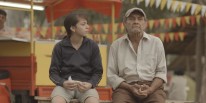 Guaraní(Guaraní)Luis ZorraquínA heartfelt story, Guaraní follows fisherman Atilio as he travels with his granddaughter Iara to Buenos Aires. His great desire is to have a grandson to ...
Guaraní(Guaraní)Luis ZorraquínA heartfelt story, Guaraní follows fisherman Atilio as he travels with his granddaughter Iara to Buenos Aires. His great desire is to have a grandson to ...Synopsis
Spanish, English, with English subtitles
With José Eduardo Aguilar (narrator)
Why you must-see this film. Because it is the most authentic, multi-awarded animated feature documentary providing an unusual intimate window into the hearts and minds of immigrant Latin youth. Because Alejandro González Iñárritu loves it and says, ‘Draws, in a simple and beautiful way, the complex reality of millions of people.’
An estimated 11 million undocumented migrants are living in the United States under the constant threat of sudden deportation. What is it like to grow up in such a situation?
Home Is Somewhere Else shares the rich complexity of the emotional experiences of immigrant children and families to better understand and empathize with them. It invites discussion about the need for a new US migratory model based on respect for human rights for all.
In this documentary animation, three young immigrants tell their stories. Eleven-year-old Jasmine fears being separated from her undocumented parents and sets off to become an activist to protect families like her own. Sisters Evelyn and Elizabeth. Evelyn was born in the USA but has chosen to return to Mexico, while her sister Elizabeth, an illegal immigrant in Los Angeles, is struggling to realize her ambitions. Finally, Lalo shares the story of his childhood, deportation experience, finding a way back, and transforming his challenges through his work as an artist and activist.
Voiced by the actual children and their families, the stories are woven together by spoken word poet José Eduardo Aguilar, also known as Lalo “El Deportee,” the film’s host and MC whose vibrant “Spanglish” breaks codes, switches standards, and pushes the viewer to decipher his poems. Their painful experiences and vibrant hopes and dreams lend themselves well to animation. A powerful reminder of how the color of your passport determines your life.
The directors may be available for an in-person or virtual Q&A. A suggested speaker fee of $300 to be agreed directly with the filmmaker is recommended in all cases. Contact us at eric@pragda.com to learn more.
Related Subjects
About the Director
Carlos Hagerman and Jorge Villalobos are Mexican filmmakers better known for their award-winning film Home is Somewhere Else (2023), a powerful reminder of how the color of your passport determines your life.

Available for Q&As, Masterclasses, and workshops upon request, in English or Spanish.
Book a Screen+Talk
Carlos Hagerman was born in Mexico City. He received his MFA in Film at NYU as a Fulbright scholar. He worked for eight years as a director in Alejandro Gonzalez Inarritu’s production company Zeta Films, before opening his own company. There, he produced and directed award-winning documentaries like Those Who Remain (IDA Humanitas Award 2009), Back to Life, and No Place Like Home. He also co-produced Plaza de la Soledad (Sundance 2013) and Rush Hour (SXSW 2018). He is a founding partner of Brinca Animation Studio.
Jorge Villalobos is a writer, director, and producer of animated and live-action projects. He directed several children’s series for Canal Once, Mexico’s Public TV channel. His animated and fiction short films won over 20 international awards. Since co-founding Brinca Animation Studio in 2012, Jorge and Carlos Hagerman have worked as a team, co-producing and co-directing animation projects for children and communication tools for human rights organizations like UNICEF and the Mexican Human Rights Commission.
Press
“Draws, in a simple and beautiful way, the complex reality of millions of people.” – Alejandro González Iñárritu
“Highly Recommended. Home is Somewhere Else is an impressive example of how sometimes only inspired artistic expression can reveal emotion and belief in ways that even some live action documentary films may fail to achieve. (...) Directors Hagerman and Villalobos have delivered something quite special in this tightly crafted animated film.” – Michael Pasqualoni, Librarian for Public Communications, Syracuse University Libraries, EMRO
“An earnest call for empathy in a country that is witnessing an unprecedented influx of immigrants.” – Emiliano Granada, Variety
“Imaginative drawings that allow for greater intimacy and understanding.” – The Film Veredic
“Profoundly unique.” – The Takeaway / WNYC
“A window into the hearts and minds of immigrant youth and their undocumented families.” – Rose Aguilar, Bee Soll, KALW 91.7 FM Bay Area
Notes on the Film
“I grew up in a predominately white, small Mormon town, amongst white people, being one of the very few Mexicans there. And yet when I met Mexicans, they treated me as if I was trying to be white, as if I didn’t belong to them either. This generation of this identity was created by the migration of our parents that took us over there and also by the U.S.’s oppressive laws, which separate you differently. We got stuck over there, in the U.S., with this lack of mobility between our spaces and countries. So you’re neither from there nor here, we’re bicultural but we’re not binational, we don’t have two nationalities. And once you get deported, you live in a different kind of shadow. I think Mexico still has a long way to go when it comes down to recognizing this identity, to understanding the reality of these people returning. And that’s what I’m trying to do, either through poetry or film, to say “We are here.”
– José Eduardo Aguilar, Narrator